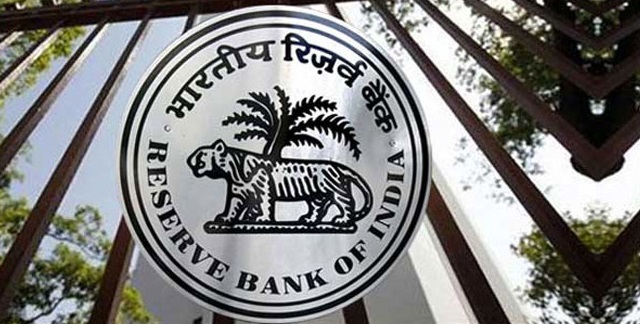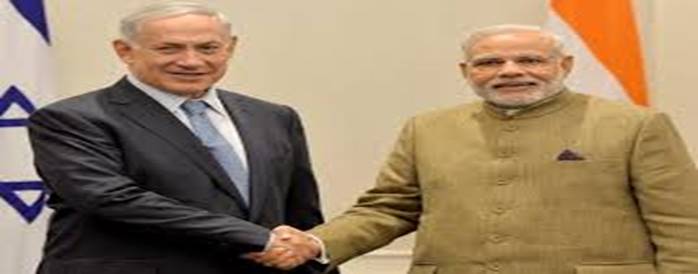SEBI gets teeth to probe new-age cases
News important for: GS paper 3 I Indian economy and issues arising out of it.
Context
The Finance Bill 2019 has given Securities and Exchange Board of India powers to impose penalty on destruction of database.
https://iasgyan.in/imagedb/1405156.jpg
Analysis
SEBI now can impose a penalty of up to Rs 1 crore on brokers who tamper or destroy electronic databases or fail to furnish information.
The step comes after the Whatsapp leak case and NSE co-location matter deal where data was leaked through electronic means and unauthorised access to data.
As per the Finance Bill, a new section 15HAA has been inserted in the SEBI Act that says if a person tampers with information to obstruct or influence an investigation, destroys regulatory data or tries to access data in an unauthorised manner then the entity could be penalised up to ₹10 crore or three times the unlawful gains, whichever is higher.
Concerns
The new section that has been inserted imposes penalty on unauthorised access to regulatory data and system databases though it is not yet clear whether ‘regulatory data’ and ‘database’ as mentioned in the section refers only to SEBI data or even those maintained by exchanges, depositories and clearing corporations.
Source link:
https://www.thehindu.com/business/markets/sebi-gets-teeth-to-probe-new-age-cases/article28323498.ece
RBI board finalises ‘Utkarsh 2022’
News important for: GS paper 3 I Indian economy initiatives
Context
The Reserve bank of India has come up with a 3 year roadmap to regulate and supervise the central banks.

Analysis
- The medium term strategy is known as “Utkarsh 2022” and is in line with global central banks plan to strengthen mechanism.
- The main objective of Utkarsh is to allow central banks plays a proactive role and plays pre-emptive action to avoid crisis.
- The roadmap was framed by RBI board which also approved RBI’s budget for July 2019- June 2020 period.
- Other matters discussed by the board included issues relating to currency management and payment systems.
Source link:
https://www.thehindu.com/business/rbi-board-finalises-utkarsh-2022/article28323698.ece
UN report ‘legitimises’ terror, says India
News important for: GS paper 3 I International relations.
Context
The recent UN report released claims that neither India nor Pakistan have taken concrete steps towards addressing various issues of Kashmir.
Analysis
- The report claimed that none of the countries have taken concrete steps to address issues raised by its previous reports.
- The report claims that the number of civilian casualties in Kashmir reported over the 12-month period i.e. May 2018 to April 2019 may be the highest in over a decade.
- The update made wide ranging recommendations to the governments of India and Pakistan, and urged the Human Rights Council (HRC) to explore possibilities of setting up an international commission of inquiry into allegations of human rights abuses in Kashmir.
- India claimed that the report was in incomplete variance with UN Security Council position as it does not legitimise terrorism.
- India also said the update has distorted its policy on the Kashmir issue and failed to recognise that the Indian state ensured justice through a strong judiciary and national human rights mechanism.
- The claims also highlights that the report ignored comprehensive socio-economic developmental efforts undertaken by the government in the face of terrorist challenges.
Source link:
https://www.thehindu.com/news/national/india-slams-un-rights-office-report-on-jk-as-continuation-of-false-narrative/article28320189.ece
Odisha gets witness protection scheme
News important for: GS paper 2 I States and their responsibilities, social justice
Context
The Odisha government has introduced a special ‘Witness Protection Scheme’ to provide security to witnesses facing threat during the course of a legal battle.
Analysis
- A district level standing committee, chaired by a district and sessions judge, with the district police head as its member and the head of the prosecution in the district as its member secretary, will take the charge.
- The district police chief will submit a report with regard to the seriousness and credibility of the threat to the witness or his/her family members if the person applies in a prescribed form.
- The report will detail the nature of the threat to the witness or his/her family members, their reputation or property.
- The intent and motive of the person issuing the threat and the resources available with him/her to execute it will figure in the analysis.
- The threat analysis report, prepared with “full confidentiality”, will reach the competent authority “within five working days of its order for inquiry”.
- Based on the report, the authority will pass an order for protection of identity of the witness.
- The Witness Protection Cell will then ensure that the identities of the witness and his/her family members, including names, parentage, occupation, address and digital footprints, are fully protected.
- Provision of relocation of the witness to a safer place has also been made in the scheme.
- In appropriate cases, where there is a request from the witness for change of identity, based on the threat analysis report, a decision can be taken to confer “a new identity upon the witness through a competent authority”.
- A dedicated cell of the State police or Central police agencies will be assigned with the duty of implementing the witness protection order.
- The ‘Witness Protection Fund’ proposed to be created will bear the expenses incurred during the implementation of the protection order.
- In case the witness has lodged a false complaint, the State home department could initiate proceedings for recovery of the expenditure from the applicant.
Source link:
https://www.thehindu.com/todays-paper/tp-national/odisha-gets-witness-protection-scheme/article28325536.ece
Israeli PM Benjamin Netanyahu expected in Delhi in September
News important for: GS paper 3 I International Relations
Context
Israeli PM Benjamin Netanyahu is expected to visit India for bilateral relationships of both the countries.

Analysis
- India-Israel relations have been growing rapidly in the last few years.
- Prime Minister Narendra Modi became the first Indian Prime Minister to visit Israel in 2017.
- Mr. Netanyahu visited India in January 2018, which marked 25 years since the establishment of full diplomatic relations.
- Bilateral talks on defence issues have focused on the emergency procurement of ‘Spike’ anti-tank missiles and the purchase of more precision-guided munitions that were used during the Balakot strikes by the Indian Air Force.
- The two sides will also discuss a long-pending proposal to buy 2 Phalcon AWACS (warning systems) for more than a billion dollars that is believed to be awaiting clearance from the Cabinet Committee on Security (CCS).
- The discussion will also include U.S.-Iran sanctions and how India should align less with Iran to align with U.S. and Israel.
Source link:
https://www.thehindu.com/news/national/israeli-pm-benjamin-netanyahu-expected-in-delhi-in-september/article28323355.ece
Towards a free trade agreement: India and U.S.
News important for: GS paper 3 I International relations, FTA.
Context
For a progressive subcontinent and global trade India and U.S. should avoid trade and investment barriers.
Analysis
- U.S. has withdrawn from India preferential tariff benefits under its Generalized System of Preferences (GSP) programme, and India has imposed retaliatory tariffs in response to tariffs that the U.S. applied last year on steel and aluminium.
- To solve the issues first step should be to empower the Office of the U.S. Trade Representative and the Ministry of Commerce and Industry to develop some problem-solving cooperative efforts under the existing Trade Policy Forum on issues such as digital trade, regulatory coherence, and intellectual property rights, matching their earlier successes on the WTO Trade Facilitation Agreement.
- The goal should be a more comprehensive platform for expanding trade and investment through the progressive elimination of trade and investment barriers, from protectionist regulatory measures to tariffs and restrictions on trade in services.
- The trade should be central and both countries should dream together for a better global trade.
Source link:
https://www.thehindu.com/opinion/op-ed/towards-a-free-trade-agreement/article28323247.ece







